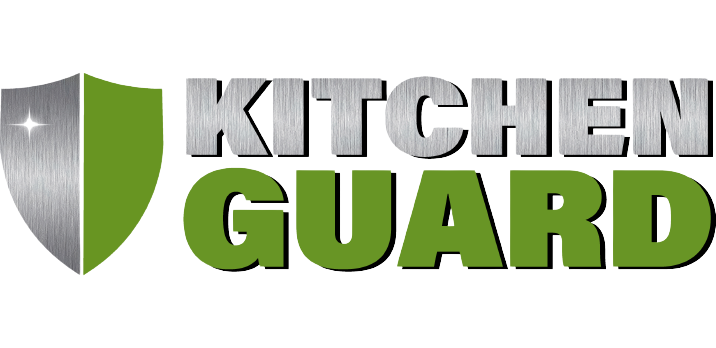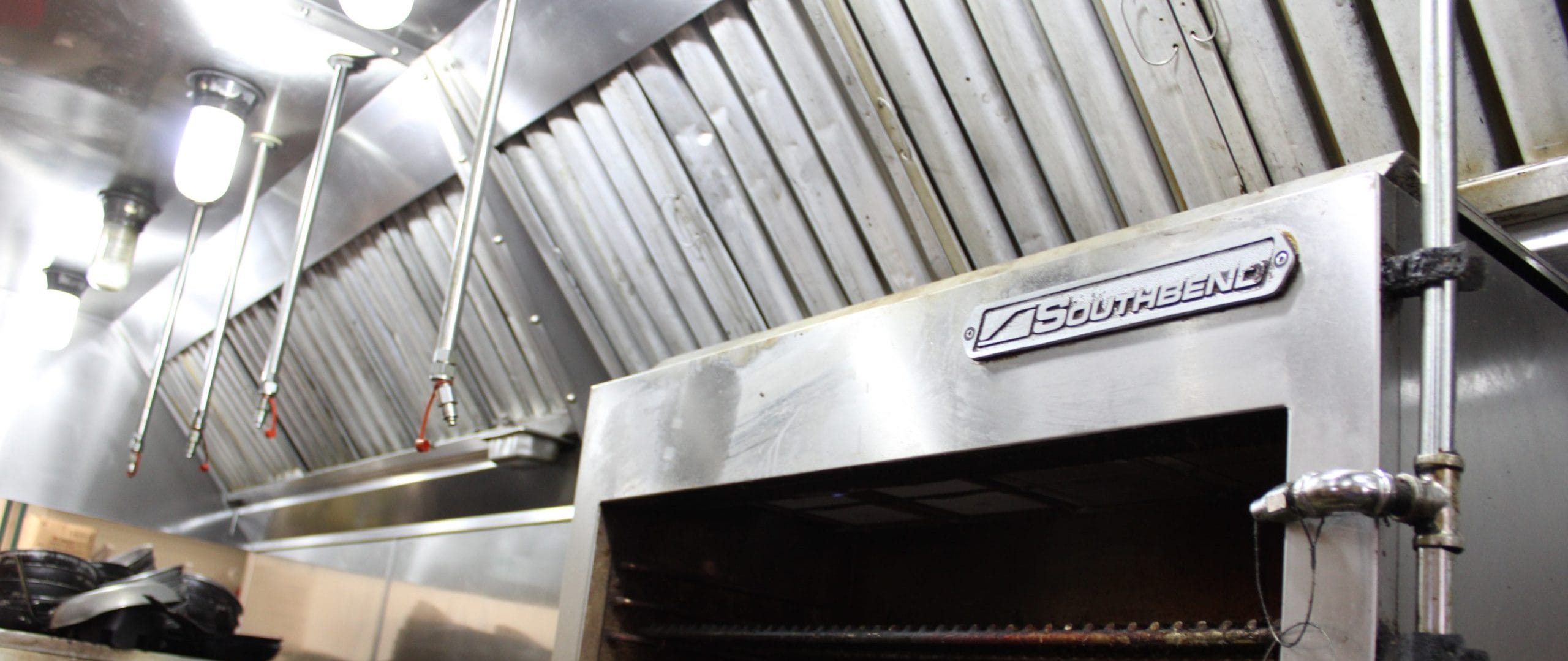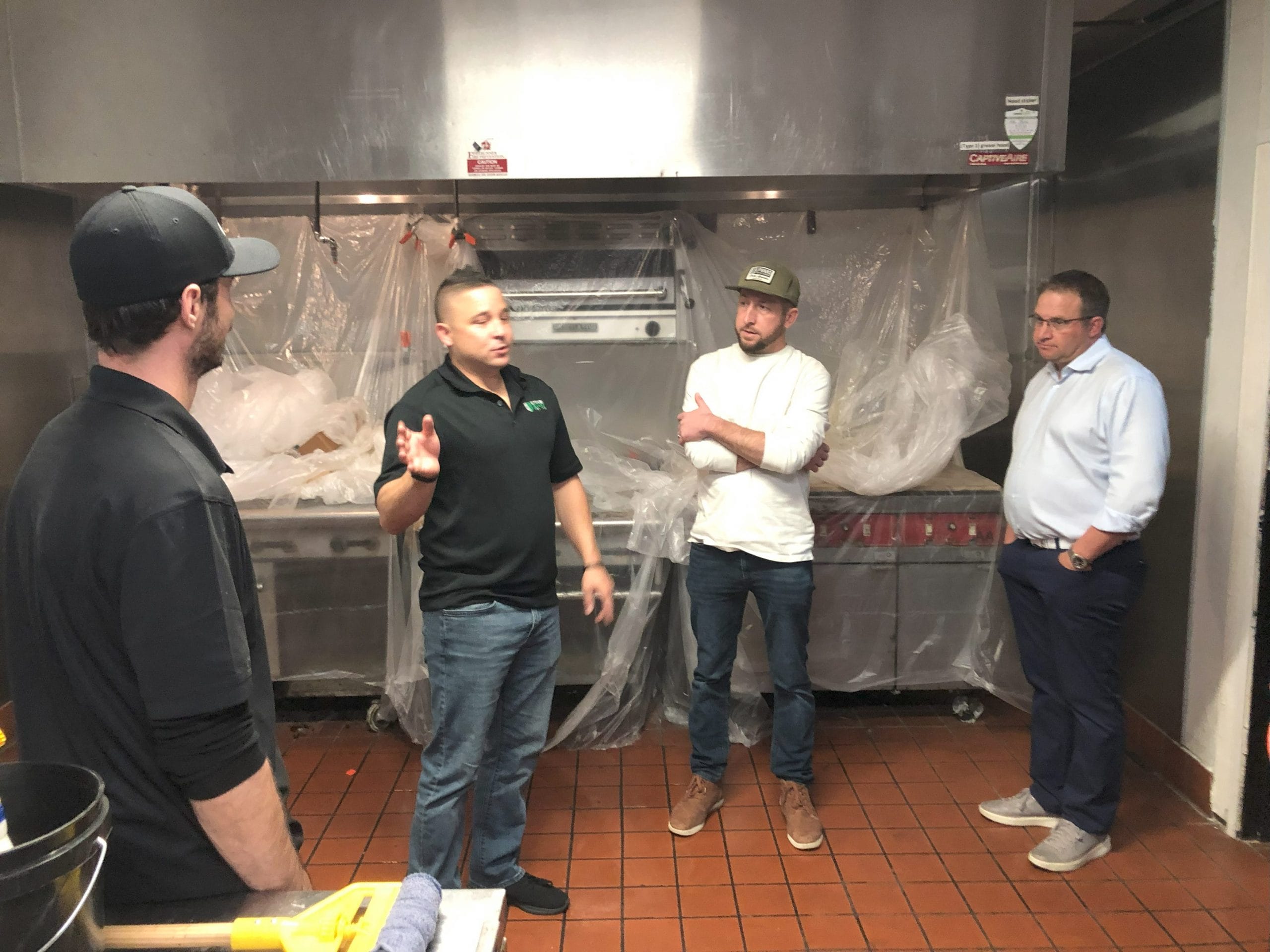The Most Common Causes of Commercial Kitchen Fires
The Importance of Clean Ventilation Filters to Specification & Standard
Overview
Commercial kitchens are bustling hubs of culinary creativity, but they also harbor significant fire risks. The National Fire Protection Association (NFPA) reports that U.S. fire departments respond annually, on average, to over 7,400 structure fires in eating and drinking establishments. That’s 20 per day in this country!
What causes them? Why do they exist? Understanding the most common causes of these fires and implementing preventative measures is crucial for ensuring the safety of both the kitchen staff and guests. And this goes beyond bricks-and-mortar restaurants, this includes church and school kitchens, and even food trucks!
Leading Causes of Commercial Kitchen Fires
- Cooking Equipment – Cooking equipment is the leading cause of commercial kitchen fires. That includes stove tops, hoods, fryers, char-broilers, ranges, and more. According to the NFPA, 3 out of 5 fires in restaurants originate from cooking equipment. The high heat and open flames used in cooking can easily ignite nearby flammable materials or overheated oil.
- Grease Buildup – Grease buildup is a significant contributor to kitchen fires. Cooking oils and fats can accumulate in exhaust hoods, vents, and ducts, creating a highly flammable environment. The NFPA notes that grease fires account for approximately 21% of all commercial kitchen fires. Once ignited, grease fires can spread rapidly, feeding off the accumulated fats and oils.
- Electrical Malfunctions – Electrical malfunctions are another common cause, accounting for about 9% of restaurant fires. Faulty wiring, overloaded circuits, and malfunctioning appliances can lead to sparks and overheating, which can ignite flammable materials or start electrical fires.
- Unmaintained Equipment – Poorly maintained kitchen equipment poses a substantial fire risk. Neglecting regular maintenance can result in malfunctioning thermostats, broken gas lines, or damaged electrical components. Equipment that isn’t properly cleaned and serviced can become a fire hazard over time. This is a shame considering the heavy investment needed for these important pieces of equipment.
- Human Error – Human error, such as unattended cooking, improper use of equipment, and lack of training, contribute to a significant number of kitchen fires. Staff members who are unaware of safety protocols or who are careless (or corner-cutters during closing tasks) can inadvertently start fires.
Preventative Measures
The good news is there are plenty of simple, easy things you can do to prevent fires. And of course, there are companies like Kitchen Guard that can help (especially for cleaning).
- Regular Cleaning and Maintenance – Maintaining a rigorous cleaning schedule is paramount to fire prevention. This includes daily cleaning of cooking surfaces and regular degreasing of exhaust hoods, vents, and ducts (and don’t forget the fan on the roof!) Contracting professional services like Kitchen Guard for deep cleaning can ensure that hidden grease buildup is addressed by professionals, and to the highest standards established by the NFPA (NFPA 96, to be exact). Additionally, regular maintenance checks on all kitchen equipment can help identify and repair potential issues before they lead to a fire. This is often the most overlooked part.
- Proper Training – Staff training is essential for fire prevention and sadly, this is a big miss. Your employees should be trained in the proper use of kitchen equipment, fire safety protocols, and emergency procedures. Believe it or not, regular fire drills can ensure that you and your entire staff know what to do and how to react in case of a fire. Training should also cover the correct way to use fire extinguishers (and make sure they are not expired). Did you know that there are different types of fires – and different ways to extinguish them? Yes, it’s true. You’ll need to use a Class K fire extinguisher for grease fires.
- Installing and Maintaining Fire Suppression Systems – A well-maintained fire suppression system can be the difference between a minor incident and a major disaster. These systems are designed to detect and suppress fires quickly, often before they can spread. They include detection devices (like fire alarms) storage systems (like foam deluge systems or other suppressants) and sprinklers, nozzles, and temperature-sensitive tubes. It’s an important system! As you can imagine, regular inspections and maintenance of these systems are crucial to ensure they function correctly in an emergency.
- Electrical Safety – Ensuring electrical safety involves regular inspections of wiring and electrical equipment. Avoiding the overloading of circuits (like too many iPhone charges and other heavy machinery on one power outlet!), replacing damaged cords, and ensuring that all electrical installations meet safety codes can help prevent electrical fires. Using surge protectors and circuit breakers can add an extra layer of protection. This is a no-brainer.
- Vigilance and Supervision – This is where you come in. Commercial kitchens need constant management with vigilance to reduce fire risks. Don’t cut corners! A few quick tips include making sure no one leaves anything cooking unattended….and keeping flammable materials away from the heat source. Trust us, these tips as well as routine refreshers on safety protocols can save lives and/or massive damage to your investment.
Be a Guardian
Commercial kitchen fires pose a serious threat to the safety of staff, guests, and expensive property. If you’re a restaurant operator or owner of a commercial kitchen, make sure your management performs these preventative tasks. If they don’t want to do the regular cleaning or proper maintenance, then Kitchen Guard in your neighborhood will be more than happy to serve you.


